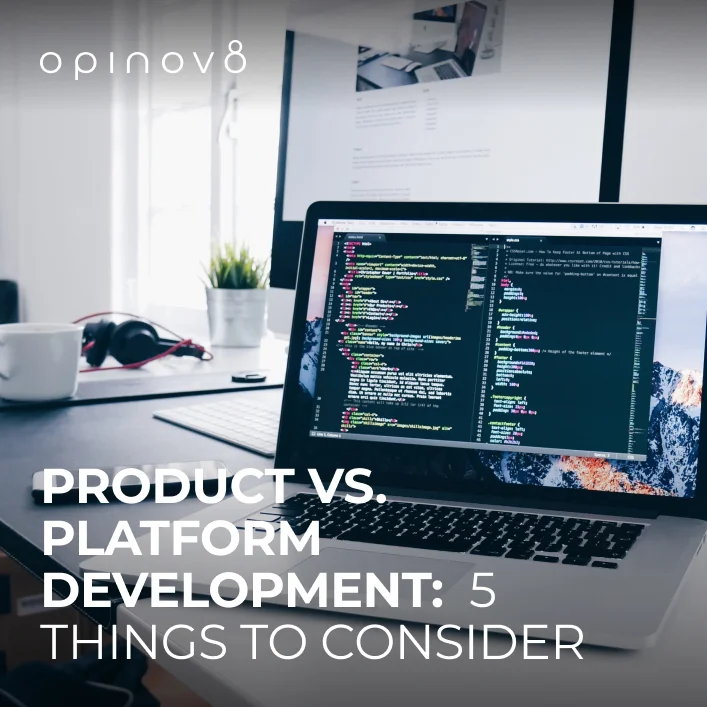
Platform development requires careful consideration of various factors to ensure success. There's a lot for a business to consider when deciding between developing a product or a platform. In short, a product is a consumable or usable piece of software you sell or offer, while a platform is a system that enables a product to work or communicate with another product. Products can stand alone or exist on platforms. The following five considerations can help your business decide which path is correct for your organization at the time, as well as the idealized implementation of what you're creating.
Creating a platform before creating a product carries a lot more risk than building the product first. In the platform vs product debate, it's important to note that products tend to be less work than platforms. However, platforms can't be converted into products. Since products tend to be less work than platforms, it's much better to have a product that doesn't work over a platform that doesn't work.
The scope of the development process is important: it is much harder to build a platform first. Your organization might be looking to build a platform in the future, but currently only has the resources to develop a product. Once having a successful product in the marketplace generating revenue, a business can work on turning it into a platform.
How you approach a problem or solution in development can vary depending on the context of the program's value. In this case, a platform creates its value through interactions while a product creates value by selling a feature. In platform development, the focus is on building a system that facilitates seamless interactions and integrations. Some ideas work very well as a product or platform, but not both.
Some great products have very long lifespans; however, not every product does. It's okay if a product is only intended for temporary or short-term use. However, any platform designed without long-term sustainability is problematic. Platforms should be deeply integrated into the business or customer infrastructure. A platform needs to stick around for a long time, preferably indefinitely. For example, a computer is a product built to last the user for several years. However, the user will use many programs, or products, throughout the lifespan of the device.
With a platform, you're developing software that needs to be easily updated. It needs to be flexible so you can make changes and improvements quickly and easily over time. While it's a better development practice to design software that's easy to maintain, it is less important with a product that doesn't need to be constantly updated. Your organization should lean towards a product if it doesn't have the capacity to provide a constant update stream.
The decision to develop a platform vs product highly depends on the resources available to your organization and the desired business case. When making the choice, go with the option that makes the most sense from a business standpoint.
Our team of tech experts is here to help you succeed! Whether you need assistance with software development, product design, or platform optimization, we've got you covered.
Check out our collection of related articles! We've curated a selection of informative, insightful pieces that can help you explore various topics such as benefits of the AWS Cloud, Quality Assurance or User Experience.
Opinov8 announces its new recognition as an Amazon RDS Delivery Partner. This accreditation underscores our expertise in managing and optimizing relational databases using Amazon RDS (Relational Database Service). We work with various engines like Amazon Aurora MySQL, Amazon Aurora PostgreSQL, PostgreSQL, MySQL, MariaDB, and SQL Server. This recognition shows our ability to help clients set […]
Opinov8 announces its new recognition as an Amazon RDS Delivery Partner. This accreditation underscores our expertise in managing and optimizing relational databases using Amazon RDS (Relational Database Service). We work with various engines like Amazon Aurora MySQL, Amazon Aurora PostgreSQL, PostgreSQL, MySQL, MariaDB, and SQL Server. This recognition shows our ability to help clients set […]
Meet Ivan, our BA Practice Lead. He tells us about his incredible work experiences, shared his top must-read books, and talked about amazing hobby that is much more than a hobby.
Meet Ivan, our BA Practice Lead. He tells us about his incredible work experiences, shared his top must-read books, and talked about amazing hobby that is much more than a hobby.